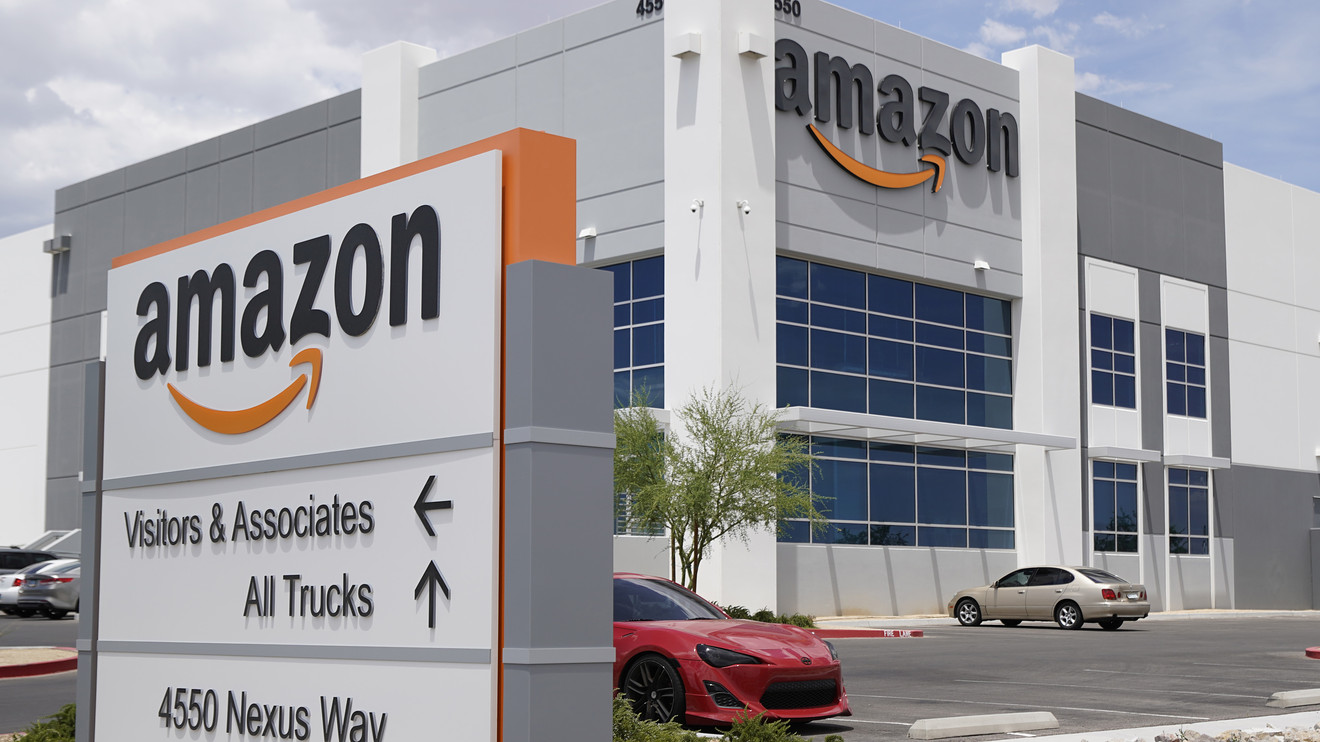
A Pennsylvania woman said she will never be the same after walking her dog four years ago and being partially blinded by a defective collar she purchased on Amazon.
Her case against the online shopping giant could eventually lead to big changes to a crucial 1996 law that protects the tech industry from liability claims, legal experts say.
Last week, a Third Circuit Court of Appeals panel voted 2-1 to reinstate Heather Oberdorf’s products liability lawsuit for a dog collar that suddenly snapped apart.
The $18.48 collar’s ring broke and the retractable leash sprang back into Heather Oberdorf’s left eye while she walked her 70-pound dog Sadie in January 2015.
Oberdorf’s case was a classic defective product claim: The $18.48 collar’s ring broke and the retractable leash sprang back into Oberdorf’s left eye while she walked her 70-pound dog Sadie in January 2015.
Oberdorf sued Amazon AMZN, +0.48% and The Furry Gang, the vendor selling the item on Amazon. No one from The Furry Gang could be located, her lawyer said.
Amazon contended that Oberdorf could not hold it liable for posting The Furry Gang’s wares because a section of the 1996 Communications Decency Act (CDA) shields companies from liability for publishing what third parties say on their sites.
However, the Third Circuit Court said that argument didn’t exactly apply to this case.
“Amazon’s involvement in transactions extends beyond a mere editorial function; it plays a large role in the actual sales process,” Judge Jane Richards Roth said, writing for the majority. “To the extent that Oberdorf’s negligence and strict liability claims rely on Amazon’s role as an actor in the sales process, they are not barred by the CDA.”
An Amazon spokeswoman declined to comment.
The Third Circuit decision is “potentially so revolutionary,” it could possibly put companies like Google GOOG, -1.35% and Apple AAPL, -2.06% on the hook for the products and services they provide, according to Carrie Goldberg, a Brooklyn lawyer who’s sued tech companies on behalf of victims of revenge porn and other privacy violations.
The implications of the case could be far-reaching, said Oberdorf’s attorney David Wilk, of Lepley, Engelman, Yaw & Wilk in Williamsport, Pa. If her case is successful, he said, Amazon may have to change its whole business model. “They cannot just say ‘Hey we’re not responsible for what’s on our website,’” Wilk said.
Broader consequences for all tech companies
The decision comes about a week ahead of Amazon’s Prime Day, a star-studded shopping bonanza. It’s one of many cases that allege internet providers and social-media sites have contributed to all sorts of wrongs, ranging from inciting religious violence to enabling nasty revenge tactics after a break-up.
Goldberg, the lawyer for revenge-porn victims, said the decision to reinstate Oberdorf’s case against Amazon was a milestone on the question of how and when tech companies can claim the CDA protects them from being held liable.
It’s one of many cases that allege internet providers and social-media sites have contributed to all sorts of wrongs, ranging from inciting religious violence to revenge porn.
She recently represented a man who lost a lawsuit against the gay dating app Grindr after the court found that the Communications Decency Act protected the dating app from liability. Goldberg’s client’s ex-boyfriend allegedly posted fake profiles under the client’s name and more than 1,000 men visited the client at both his work and home, expecting sex. The Second Circuit ruled in March that the CDA’s protections to internet providers also applied to Grindr in the product liability case.
However, Goldberg said the Communications Decency Act was originally written “to protect online bulletin boards from defamation lawsuits.” But recent decisions interpreted it so expansively that “Big Tech seemed beyond the reach of our judicial system,” Goldberg said. “It’s become a government handout to the industry least in need, and that repeatedly abuses our privacy and trust.”
To that end, Oberdrof’s lawyer, David Wilk, said he was “extremely gratified” with the decision. “As far as I know, it’s the first to hold, under Pennsylvania’s product liability law, [an online site] is a seller of a product even though they are not in possession of it.”
In late May, another federal circuit court chimed in on Amazon’s legal responsibilities for an allegedly defective headlamp that caused a Maryland house fire. There, the Fourth Circuit said the Communications Decency Act “does not protect” computer service providers from liability as the seller of a defective product. Nevertheless, the Fourth Circuit said Amazon wasn’t the “seller” in that case.
The Grindr case, like Oberdorf’s suit, was an interesting twist on the Communications Decency Act, according to Christopher Robinette, a professor at Widener University Commonwealth Law School. “It’s not the traditional, ‘You said something false about me and therefore hurt my reputation,’” case, the tort-law expert said.
“The tech companies are getting worried. They see these cases now that are starting to push on the boundaries of the CDA,” he added.
Amazon shares are 29% this year to date, compared to a 15% increase for the Dow Jones Industrial Average DJIA, -0.43% and a 19% gain for the S&P 500 Index SPX, -0.48%











Add Comment